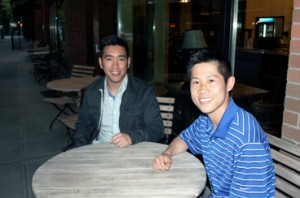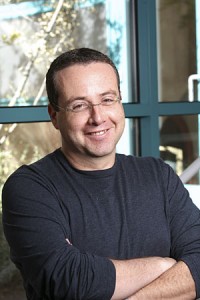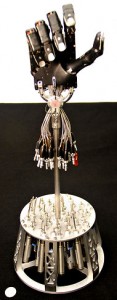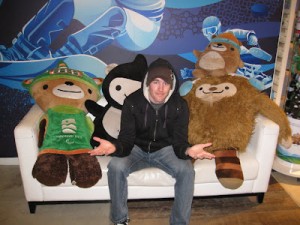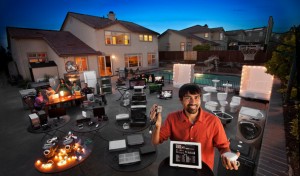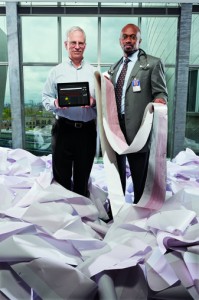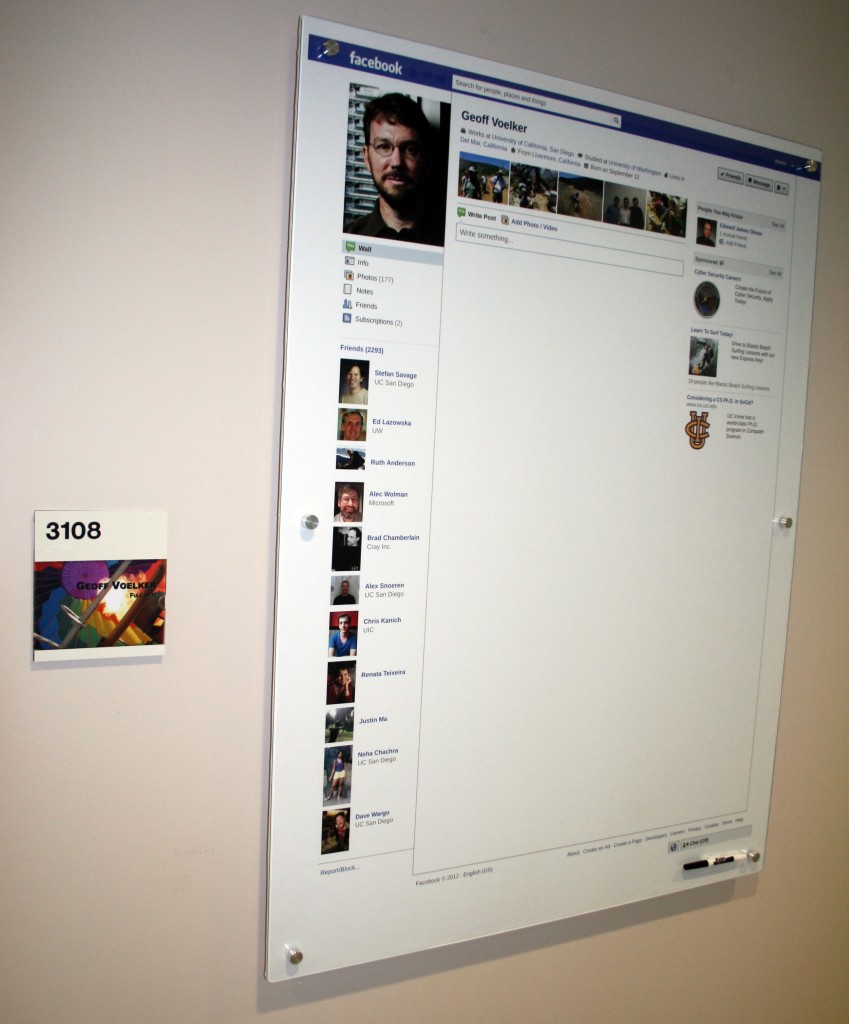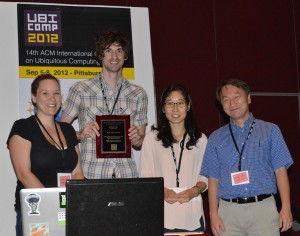
UW CSE Ph.D. student Matt Kay receives a Ubicomp 2012 Best Paper Award
dub is the University of Washington’s highly successful cross-campus (and beyond!) collaboration on human-computer interaction and design.
Earlier we reported on the receipt of a Best Paper Award at the 14th ACM International Conference on Ubiquitous Computing by the paper “An Ultra-Low-Power Human Body Motion Sensor Using Static Electric Field Sensing” by dub researchers Gabe Cohn (UW, and Microsoft Research consultant), Sidhant Gupta (UW, and MSR consultant), Tien-Jui Lee (UW), Dan Morris (MSR, and UW affiliate professor), Josh Smith (UW), Matt Reynolds (Duke), Desney S. Tan (MSR, and UW affiliate professor), and Shwetak Patel (UW). (Lead author Gabe Cohn is a Ph.D. student advised by Shwetak Patel.)
It turns out that this was just the tip of the iceberg. Another dub paper was also recognized with a Ubicomp Best Paper Award: “Lullaby: A Capture & Access System for Understanding the Sleep Environment” by Matt Kay (UW), Eun Kyoung Choe (UW), Jesse Shepherd (UW), Ben Greenstein (Google, and UW affiliate professor), Nathaniel Watson (UW), Sunny Consolvo (Google, and UW affiliate professor), and Julie Kientz (UW). (Lead author Matt Kay is a Ph.D. student co-advised by Julie Kientz and Shwetak Patel.)
Two other dub papers were among the 9 papers in total that were nominated for Ubicomp Best Paper Awards:
“SpiroSmart: Using a Microphone to Measure Lung Function on a Mobile Phone” by Eric Larson (UW), Mayank Goel (UW), Gaetano Borriello (UW), Sonya Heltshe (UW), Margaret Rosenfeld (UW), and Shwetak Patel (UW). (Lead author Eric Larson is a Ph.D. student advised by Shwetak Patel.)
“Investigating Receptiveness to Sensing and Inference in the Home Using Sensor Proxies” by Eun Kyoung Choe (UW), Sunny Consolvo (Google, and UW affiliate professor), Jaeyeon Jung (MSR, and UW affiliate professor), Beverly Harrison (Lab126-Amazon, and UW affiliate professor), Shwetak Patel (UW), and Julie Kientz (UW). (Lead author Eun Kyoung Choe is a Ph.D. student advised by Julie Kientz.)
And two additional Microsoft Research papers with UW-affiliated authors also were nominated:
“Some Help On the Way: Opportunistic Routing Under Uncertainty” by Eric Horvitz (MSR, and UW affiliate professor) and John Krumm (MSR).
“Automatically Characterizing Places with Opportunistic CrowdSensing using Smartphones” by Yohan Chon (Yonsei University, Seoul Korea), Nicholas D. Lane (MSR Asia), Fan Li (MSR Asia), Hojung Cha (Yonsei University), and Feng Zhao (MSR Asia and UW affiliate profess0r).
That’s six out of nine Ubicomp Best Paper Award nominees, including two of the three winners! Read more →
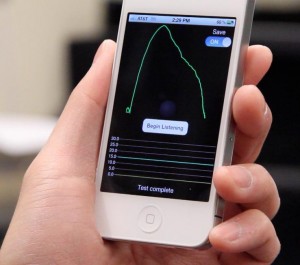 “Is there anything a smartphone app can’t do? Researchers at the University of Washington, UW Medicine and Seattle Children’s hospital have figured out how to let people measure their own lung health by breathing in the direction of the standard microphone on a smartphone, without any specialized attachments.
“Is there anything a smartphone app can’t do? Researchers at the University of Washington, UW Medicine and Seattle Children’s hospital have figured out how to let people measure their own lung health by breathing in the direction of the standard microphone on a smartphone, without any specialized attachments.

